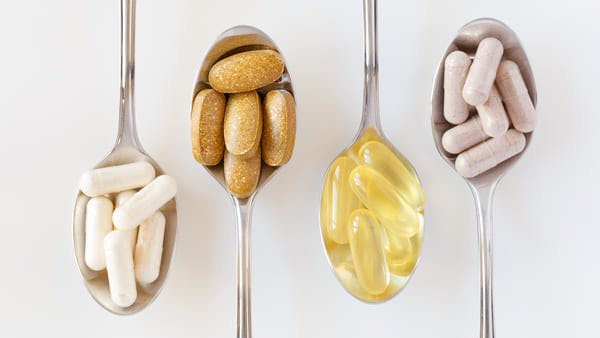What Nutrients Do I Need During Pregnancy?
Contributed by Elizabeth Ward, MS, RD
A balanced diet is the best way for women to get most of the nutrients they need before, during, and after pregnancy. But many women in their childbearing years come up short for several vitamins and minerals that affect their health and their child’s. Here’s how to bridge vital nutrient needs for you and your baby-to-be.

What to Expect: Your Pregnancy Diet
There’s no reason to wait for a positive pregnancy test to get your diet in the best shape possible to support a healthy pregnancy. There’s plenty you can do right now to help ensure your health and your future child’s wellbeing, too.
Starting pregnancy in the healthiest shape possible gives your child a better chance of developing properly and reduces the risk of pregnancy complications. A balanced diet rich in fruits, vegetables, whole grains, seafood, lean meats, and low-fat dairy is the best approach to wellness before pregnancy.
If you’re like many women, your diet is low in several nutrients that could prevent you from conceiving in tip-top shape, even if your weight is in the healthy range. According to the 2015 Dietary Guidelines for Americans (DGA), adult women don’t consume enough calcium, vitamin D, potassium, and fiber.
The DGA also cites folic acid as one of two nutrients that should be increased in women of childbearing age. If you’re still not getting all the nutrients you need before conception, consider taking a prenatal vitamin that contains these essential nutrients:
B Vitamins
Suggested intakes for all of the B vitamins, including folic acid, increase during pregnancy, and are typically met with a balanced diet, with the possible exception of vitamin B12. Women who avoid or skimp on animal foods may not get enough B12 and should rely on fortified plant foods and dietary supplements to meet their needs.
Folic Acid
Folic acid, a B vitamin, is essential in preventing neural tube defects, such as spina bifida, in the developing fetus during the first 30 days of pregnancy. The U.S. Preventive Services Task Force recommends that women of childbearing age with no history of a pregnancy affected by a neural tube defect consume 400 to 800 micrograms of folic acid daily from foods and/or vitamin supplements before pregnancy. Fortified grains, including bread, cereal, and pasta, provide the same form of folic acid found in dietary supplements.
Vitamin A
Before, and during, pregnancy, avoid taking dietary supplements with more than 10,000 International Units (I.U.) of vitamin A. While vitamin A is beneficial for many reasons, taking more than 10,000 IU of preformed vitamin A (retinol) per day may cause birth defects. Look for a dietary supplement with the majority of vitamin A as beta-carotene.[1]
Iron
Women need the most iron in their childbearing years, according to the DGA. While it’s important to be adequately nourished with an array of nutrients during pregnancy, iron stands out because suggested intakes increase significantly after conception.
Iron helps the body transport oxygen, and prevent anemia in pregnant mothers. No matter how balanced your pregnancy diet, it’s difficult to get the iron you need from food alone. Health experts, including the Centers for Disease Control and Prevention, recommend pregnant women take supplemental iron every day.
Iodine
Iodine is a mineral involved in baby’s brain development. Iodized salt and seafood are rich in iodine. Women’s iodine requirements increase significantly during pregnancy. If your diet is low in salt, look for a supplement that contains sea kelp, a good source for iodine.
Omega-3
Seafood is also a source of omega-3 fats. One type of omega-3 fat, docosahexaenoic acid (DHA), helps to support your child’s brain and visual development during pregnancy, breastfeeding, and in the first few years of life. For this reason, and others, the 2015 Dietary Guidelines for Americans recommend pregnant and nursing women eat fish twice weekly. If you don’t eat the recommended amount of fish, omega-3 supplements can help balance your nutritional needs.
Calcium & Vitamin D
You would think that the suggested intakes for all nutrients would increase during pregnancy, but that’s not true for calcium and vitamin D. However, it is still good to ensure adequate intakes because many women don’t consume enough of these bone-building nutrients before they conceive and may not get enough during pregnancy. Calcium is necessary to build baby’s bones and teeth, and to maintain the strength of mom’s skeleton, too. Vitamin D is essential for calcium absorption by the body.
Vitamin D-fortified milk is an excellent source of calcium and vitamin D. However, while three eight-ounce glasses of milk supply adequate calcium for pregnancy, you would need to drink six glasses to satisfy the suggested vitamin D intake. If you don’t eat at least three servings of dairy or calcium-fortified foods daily, you may need extra calcium. Most dietary supplements supply the majority of the vitamin D suggested during pregnancy, and food can supply the rest.
After Baby Arrives
Once you deliver, your body begins to return to its normal state before pregnancy. If you’re breastfeeding, you need to take extra care of yourself during this time.
While eating right provides you with the fuel and nutrients you need to recover from pregnancy, you may find yourself skimping on healthy foods because you’re busy. Try as much as possible to eat nutritious meals and snacks.
Nutrition is a high priority for breastfeeding women. In addition to healthy lifestyle habits, diet determines the quality and quantity of breast milk. Some nutrient needs, including those for vitamins A and E, certain B vitamins, vitamin C, and iodine, are actually higher during breastfeeding than during pregnancy.
If breast milk has a fault, it’s that it’s low in vitamin D. The American Academy of Pediatrics suggests that all babies, including those that are exclusively breastfed, consume 400 IU of vitamin D daily from the first days of life to help prevent rickets, a bone-weakening disease.
Whether breastfeeding or not, you can continue to take your daily prenatal vitamins post-partum to get the regular nutrient requirements for women in their childbearing years. When your supply of prenatal supplements is gone, consider taking a daily multivitamin designed for women under age 50. It’s still important to meet all your essential vitamin and mineral requirements, even if you have no plans to give birth any time soon.
Elizabeth Ward, M.S., R.D., is a writer and a nutrition consultant who specializes in family nutrition, women's health, and weight control.











